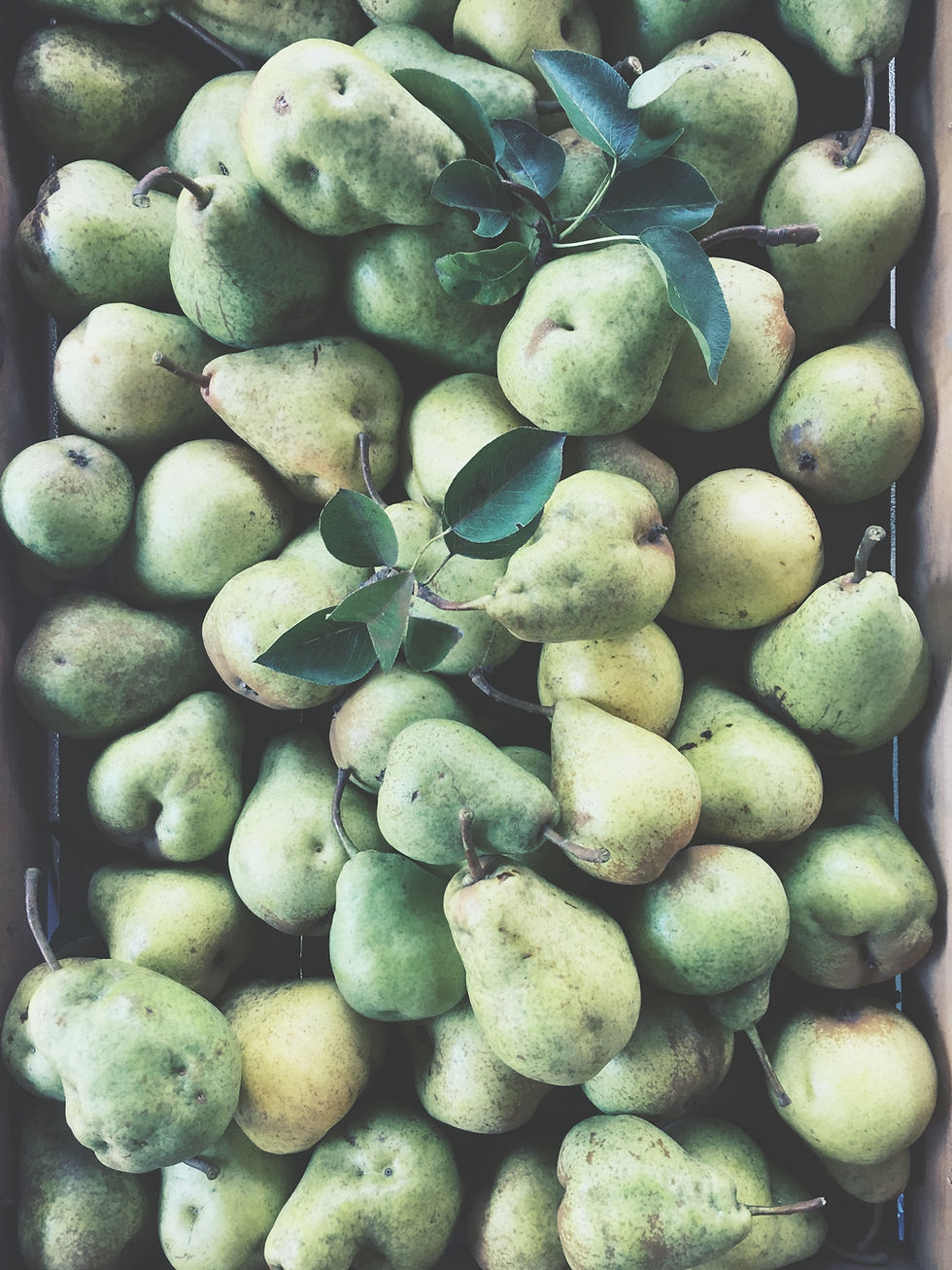Seasonal Allergies Part 2: Treatment
- amylapes
- Apr 9, 2020
- 2 min read
Updated: Jun 4, 2021
Despite the looming of larger pandemic concerns, we are still seeking time to get outdoors and embrace springtime, and for some...it is still allergy season.
Part 1 discussed seasonal allergies causes, but let's get to what you really need to know.
How can you best treat your seasonal allergies?
If you have struggled with seasonal allergies you are probably familiar with the ideas of allergen avoidance, anti-histamines, and decongestants. Read on for additional ways to get relief from seasonal allergies with no unwanted side effects.
Nutrition
Food is used as therapy in Chinese Medicine. Recommendations are specific to the type of symptoms
someone is experiencing.

Sneezing, itchy, runny nose, shortness of breath, asthmatic symptoms, predominant in fall season (pointing to a lung issue):
Try adding these foods in to your diet:
Fruits & Veggies: grapes, pears, peaches, tangerines asparagus, carrots, cauliflower, radish, leeks, onions, mushrooms, mustard greens, olives, sweet potato, yams
Nuts & Legumes: walnuts, almonds, black beans, garbanzo beans
Herbs/spices: garlic, ginger, thyme
Above symptoms plus excess of fluids (mucus in nose, throat), foggy headed, fatigue (pointing to a Spleen pattern):
Food temperature: Most importantly, this organ system does best with warm and cooked foods. Try trading out your salad for roasted veggies or warm soups:
Warming herbs/spices: cayenne, black pepper, ginger, garlic fennel, cinnamon, nutmeg, coriander, cumin
Limit: Dairy, wheat, sugar, icy cold drinks
Allergy symptoms worse in the spring with itchy, red, watery, and inflamed eyes? These symptoms point to Liver patterns and can be supported with these recommendations: Increase intake of sour foods. Think fermented foods (pickles, miso, sauerkraut, kombucha) or tart apples, citrus, vinegar.
Enjoy plenty of green tea which is thought to have an anti-histamine effect.
Acupuncture & Herbal Medicine
Acupuncture and herbs can be used successfully during allergy season to treat acute symptoms or used periodically during the year to prepare your body to interact with the environment.

How does acupuncture help?
Acupuncture helps regulate the inflammatory response, histamine reaction, and reduce hypersensitivity of the immune system. Used ahead of time, it can treat underlying health problems or provide almost immediate relief for nasal congestion or eye irritation.
How many treatments are needed?
Treatment times can vary depending on the individual and their allergy history. Often, receiving treatments just once a week for 4-10 weeks can minimize symptoms during allergy season. Several treatments throughout the year are useful for prevention of allergy symptoms.
Herbal medicine for prevention
An ancient immune boosting formula like Jade Windscreen with the herbal powerhouse of astragalus has been used successfully for the modern application of seasonal allergies. Starting a regimen at least one month before allergy starts is most effective.
Herbal Medicine for symptom relief
Many herbs can be used for immediate symptom relief. Herbs such as Xanthium and Magnolia Flower clear nasal congestion and sinus headaches. Mint and Wild Chrysanthemum Flower relieve red, itchy eyes and a sore throat. Herbs like these are combined in easy to take, effective formulas.
Essential Oils

Blend a few drops of lavender, lemon, and peppermint in to a diffuser or roller bottle.
Lavender is a natural antihistamine.
Lemon clears the sinuses, boosts immunity, and steadies breathing.
Peppermint helps clear mucous from the airways.




Comments